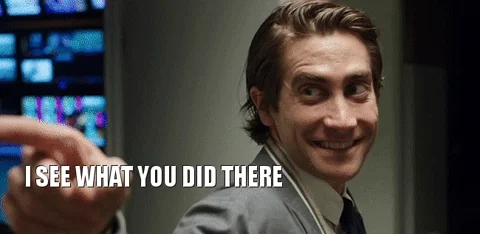Originally published at: The cognitive bias codex links to a definition of each cognitive bias | Boing Boing
…
This is a great diagram of what other people—not me—do when they try to think. A great resource to figure out why people who disagree with me are so wrong in their thinking.
What if it’s biased?
It clearly depicts the “complex diagram” effect, where people are more impressed if there are lines leading to multititudes of options.
It also exhibits the “brain in center” effect, where if you put a brain in the center of your diagram people are more likely to think it’s “smart”
At least the brain lotus is in traditionally calming colours even if it is barely legible.
Oh shit, I’m hella high right now, can no comprenda!
How do you know this isn’t merely confirming your prior beliefs about confirmation bias?
If only so many people didn’t perform a category error when they considered their own biases, the world would be a much better place. Not me, of course.
Actually, totally me. My bad y’all.
This diagram is so pleasing to me because of the links under each bias. Great way to put a bunch of info together.
I know exactly what you are intending to say.
This one is nice also
pbs newshour IS my cognitive bias !!
![]()
My cognitive bias is Fox “News”. If it’s on Fox Noise it MUST be bullshit!

I looked at that diagram and had to agree with the label. Too Much Information.
Now that would be an interesting infographic.
I think that worldview is a consequence of a very limited perspective on decisions: a decision is not atomic, for each complex problem there is a continuous stream of decisions that happen while one’s understanding of the world evolves as the world responds to our decisions. Each subsequent decision has the strong potential to be less wrong. You can’t speed up the evolution of understanding by pointing out the people’s fallacies, that’s IMHO the best way to build resistance. A more helpful way is teaching people to measure the outcome of their decisions, so that they can learn more easily. That also works well in groups, explicitly reviewing and evolving decisions opens the space for dialog and experimentation.
I wish more people made that distinction. Understanding logical fallacies is helpful for discussing the validity of a claim, independently of the person who made that claim.
Understanding cognitive biases can’t help us with specific decisions at all, they can only help us understand the limits of our own understanding of the world.
lol. A fool with a tool is still a fool. But probably more dangerous, and more effective in wasting one’s time.
When cognitive biases were all the rage a couple of years ago, they were thrown around quite a bit in meetings, sometimes that was quite a challenge as a facilitator. I wonder if now is the time that a new generation catches on.
Edit: fixed formatting of quotes
Are you sure?
This topic was automatically closed after 5 days. New replies are no longer allowed.